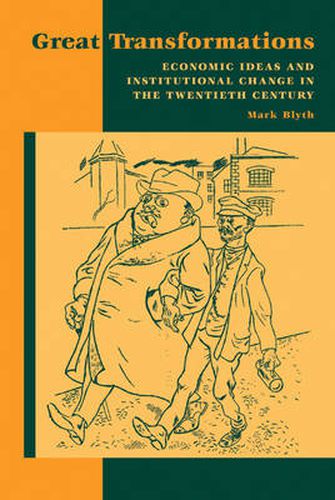Readings Newsletter
Become a Readings Member to make your shopping experience even easier.
Sign in or sign up for free!
You’re not far away from qualifying for FREE standard shipping within Australia
You’ve qualified for FREE standard shipping within Australia
The cart is loading…






This book picks up where Karl Polanyi’s study of economic and political change left off. Building upon Polanyi’s conception of the double movement, Blyth analyzes the two periods of deep seated institutional change that characterized the twentieth century: the 1930s and the 1970s. Blyth views both sets of changes as part of the same dynamic. In the 1930s labor reacted against the exigencies of the market and demanded state action to mitigate the market’s effects by ‘embedding liberalism.’ In the 1970s, those who benefited least from such ‘embedding’ institutions, namely business, reacted against these constraints and sought to overturn that institutional order. Blyth demonstrates the critical role economic ideas played in making institutional change possible. Great Transformations rethinks the relationship between uncertainty, ideas, and interests, achieving profound new insights on how, and under what conditions, institutional change takes place.
$9.00 standard shipping within Australia
FREE standard shipping within Australia for orders over $100.00
Express & International shipping calculated at checkout
This book picks up where Karl Polanyi’s study of economic and political change left off. Building upon Polanyi’s conception of the double movement, Blyth analyzes the two periods of deep seated institutional change that characterized the twentieth century: the 1930s and the 1970s. Blyth views both sets of changes as part of the same dynamic. In the 1930s labor reacted against the exigencies of the market and demanded state action to mitigate the market’s effects by ‘embedding liberalism.’ In the 1970s, those who benefited least from such ‘embedding’ institutions, namely business, reacted against these constraints and sought to overturn that institutional order. Blyth demonstrates the critical role economic ideas played in making institutional change possible. Great Transformations rethinks the relationship between uncertainty, ideas, and interests, achieving profound new insights on how, and under what conditions, institutional change takes place.